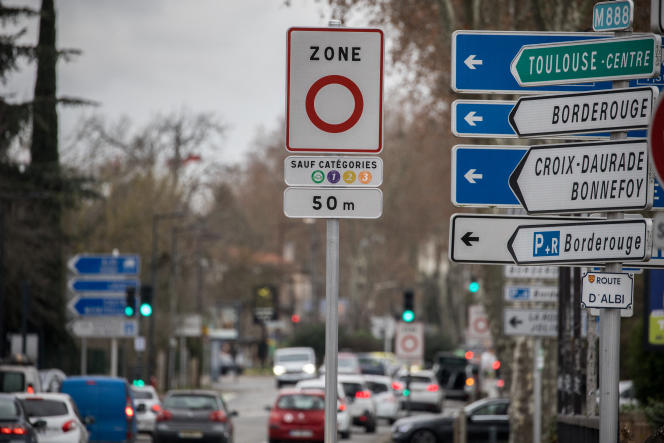This October 8, 2018, Elisabeth Borne is not yet the first minister in charge of ecological planning, but minister of transport, when she brings together the fifteen most polluted cities and metropolises in France to “launch an irreversible dynamic at both national and local level” : the deployment of low emission zones (ZFE).
Five years and two laws later (Mobility in 2019, Climate and Resilience in 2021), the ZFEs, which aim to gradually ban the most polluting vehicles, have never been so contested and many cities are still reluctant to implement them. place, torn between imperatives of public health and social justice. They will be relieved. After two missions from the National Assembly and the Senate, and before that entrusted by Elisabeth Borne to the former Minister for Ecological Transition, Barbara Pompili, a report formulating “25 proposals to combine ecological transition and social justice” was handed over on Monday, July 10, to the current holder of the post, Christophe Béchu. The Minister has decided to loosen the reins on agglomerations not affected by pollution thresholds being exceeded. “The objective is not to annoy the French or to take anti-poor measures but to put an end to the number of deaths from air pollution which is still 47,000 per year”he recalled on Monday.
The report comes from the national consultation committee set up by the Minister for Ecological Transition in January in an attempt to clear an explosive file and ward off the specter of a “crisis of the “yellow vests” bis”as confided to the World one of its coordinators, Jean-Luc Moudenc, mayor (various right) of Toulouse and president of the metropolis.
“Unlike previous reports, all the proposals received broad consensus from a wide variety of actors and political sensitivities”, says Jean-Luc Moudenc. The consultation committee brought together the representatives of all the agglomerations of more than 150,000 inhabitants required to deploy a ZFE, by 2025, in the wake of the metropolises (Paris, Marseille, Lyon, Toulouse, Nice , Montpellier, Strasbourg, Grenoble, Rouen, Reims, Clermont-Ferrand and Saint-Etienne) which already have them, but also representatives of transport and logistics companies, artisans and associations such as Secours Catholique.
“It’s the death of the ZFE”
To defuse this “social bomb”the consultation committee is calling for more “flexibility”. Jean-Luc Moudenc thus recommends“adapt EPZs to the reality of pollution”. A recommendation endorsed by the government and its minister for ecological transition, who held a ministerial committee on Monday devoted to ZFEs. Sentenced by the European Commission and then to heavy fines by the Council of State (30 million euros) for repeated overruns of air pollution standards in around ten cities, France, like other European countries have decided to install EPZs to improve air quality.
You have 59.51% of this article left to read. The following is for subscribers only.
